-

Apr
21
Interpretive Summary: Pleomorphic adenoma gene 1 (PLAG1) promotes proliferation and inhibits apoptosis of bovine primary myoblasts through the PI3K-Akt signaling pathway
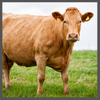
Pleomorphic adenoma gene 1 (PLAG1) is a critical candidate gene that affects bovine stature and height. Past studies have focused on correlations between PLAG1 and quantitative traits.
Read more
-

Apr
21
Interpretive Summary: Calcium-sensing receptor is not expressed in the absorptive enterocytes of weaned piglets
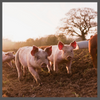
The calcium-sensing receptor (CaSR) has been identified as a nutrient sensor along the gastrointestinal tract and plays a pivotal role in food digestion, nutrient absorption, and energy metabolism.
Read more
-

Apr
21
Interpretive Summary: Oxidative stress biomarkers and free amino acid concentrations in the blood plasma of moderately exercised horses indicate adaptive response to prolonged exercise training

Performance horses are subjected to numerous stressors. These stressors may subsequently impact their overall performance. The present study measured oxidative stress biomarkers in the blood of exercising horses.
Read more
-

Apr
21
Interpretive Summary: CCK and GLP-1 release in response to proteinogenic amino acids using a small intestine ex vivo model in pigs
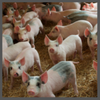
Understanding which dietary amino acids (AA) may impact the release of gut hormones involved in the modulation of feed intake, such as cholecystokinin (CCK) and glucagon-like peptide 1 (GLP-1), can help improve pig feed formulations.
Read more
-

Apr
21
Interpretive Summary: Evaluation of optimal dietary calcium level by bone characteristics and calcium metabolism-related gene expression of broilers from 22 to 42 d of age
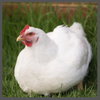
The present experiment was conducted to evaluate an optimal dietary Ca level by bone characteristics and Ca metabolism-related gene expression of broilers fed a corn-soybean meal diet from 22 to 42 d of age.
Read more
-

Apr
21
Interpretive Summary: Equine enterocytes actively oxidize L-glutamine, but do not synthesize L-citrulline or L-arginine from L-glutamine or L-proline in vitro

The amino acid arginine (Arg) is a precursor for the synthesis of multiple biological molecules including nitric oxide, polyamines, and creatine that are involved in cell proliferation, cellular remodeling, dilation of blood vessels, and phosphocreatine production for a readily available source of energy.
Read more
-

Apr
14
Interpretive Summary: Polyamines protect boar sperm from oxidative stress in vitro
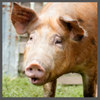
Boar semen preservation and artificial insemination are widely used in the pig industry. Although preservation in vitro prolongs sperm lifespan, reactive oxidative species (ROS) also accumulate in sperm with the increased preservation period.
Read more
-

Apr
14
Interpretive Summary: Galyean Appreciation Club Review: revisiting nutrition and health of newly received cattle—what have we learned in the last 15 years?

Bovine respiratory disease (BRD) is a significant economic and animal welfare challenge for the beef industry. Experiments related to the health and management of newly received cattle published in the last 15 yr were reviewed.
Read more
-

Apr
14
Interpretive Summary: Palatability and apparent total tract macronutrient digestibility of retorted black soldier fly larvae-containing diets and their effects on the fecal characteristics of cats consuming them

The pet food industry is interested in black soldier fly larvae (BSFL) because of its supposed sustainability and nutritional qualities.
Read more
-

Apr
14
Interpretive Summary: Technical Note: Validation of the effectiveness of electric stunning for euthanasia of mature swine
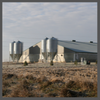
The objectives of the current study were to evaluate the effectiveness of a mobile electric stunner (E-STUN) as a method of humane euthanasia in heavy-weight mature boars and sows and to assess the outcomes when compared with a penetrating captive bolt gun (PCBG) method.
Read more
-

Apr
13
Interpretive Summary: Keel bone damage affects behavioral and physiological responses related to stress and fear in two strains of laying hens
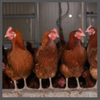
Keel bone damage (KBD) impairs production performance, welfare, and health in laying hens. This study aimed to compare the incidence of KBD and investigate the effects of KBD on stress and fear in two strains of laying hens.
Read more
-

Apr
13
Interpretive Summary: Effects of dietary vitamin E and fat supplementation in growing-finishing swine fed to a heavy slaughter weight of 150 kg: I. Growth performance, lean growth, organ size, carcass characteristics, primal cuts, and pork quality
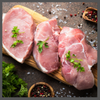
The study aimed to assess the effect of vitamin E (VE) supplementation and fat source on growth performance, carcass characteristics, and pork quality of pigs slaughtered at 150 kg.
Read more
-

Apr
13
Interpretive Summary: Increased feed supply and dietary fiber from sugar beet pulp improved energy retention in gestating sows
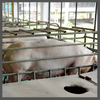
Feeding sows sugar beet pulp (SBP) has many known benefits, for example, increased satiety, and it is a highly fermentable fiber source for sows. This study investigates how efficient sows utilize energy for fat and protein retention in response to increased SBP inclusion in the diet.
Read more
-

Apr
13
Interpretive Summary: Dam parity structure and body condition during lactation influence piglet growth and gilt sexual maturation through pre-finishing
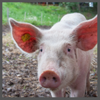
Young female swine have a greater challenge successfully producing and raising a litter of piglets as they are still maturing themselves and nursing is an extremely energy demanding event.
Read more
-

Apr
07
Interpretive Summary: Cattle acclimate more substantially to repeated handling when confined individually in a pen than when assessed as a group
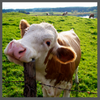
Chute and exit scores are common subjective methods used to evaluate temperament in cattle production systems. A pen test, which allows behavior to be observed in a non-restrained setting, may also be an effective method to evaluate temperament by allowing more variation among animals to be expressed.
Read more
-

Apr
07
Interpretive Summary: Heritability and genetic correlation estimates of semen production traits with litter traits and pork production traits in purebred Duroc pigs
.png?sfvrsn=dfb34dd1_0)
Genetic parameters of 5 semen production traits, 10 litter traits, and 3 pork production traits in purebred Duroc pigs was estimated.
Read more
-

Apr
07
Interpretive Summary: Inclusion of sire by herd interaction effect in the genomic evaluation for weaning weight of American Angus
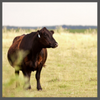
The objective of this study was to estimate the variance components (VC) for WW in American Angus with and without sire by herd (S×H) interaction effect when genomic information is used or not.
Read more
-

Apr
07
Interpretive Summary: Dietary inclusion of ruminally protected linseed oil as a means to mitigate heat and slaughter-induced stress in feedlot cattle
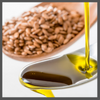
This study evaluated the effect of n-3 PUFA supplementation to feedlot-finished steers during summer on animal performance, physiological and biochemical response, and meat quality.
Read more
-

Apr
07
Interpretive Summary: Long-duration transit and food and water deprivation alter behavioral activities and aggressive interactions at the feed bunk in beef feedlot steers
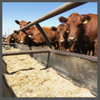
Because of the segmentation of the cattle industry, cattle are transported at least once during their lives. The objective of these two studies was to determine if transportation, feed and water deprivation, and/or transit duration changed the behavior of feedlot steers.
Read more
-

Apr
07
Interpretive Summary: Effects of whole corn high-grain diet feeding on ruminal bacterial community and epithelial gene expression related to VFA absorption and metabolism in fattening lambs

Long-term feeding of high-grain diets with too fine crushed grains to sheep will cause a series of health issues. Therefore, our study was to investigate the effects of whole corn (unprocessed corn) high-grain diet feeding on growth performance and rumen development in fattening lambs.
Read more
 AprInterpretive Summary: Pleomorphic adenoma gene 1 (PLAG1) promotes proliferation and inhibits apoptosis of bovine primary myoblasts through the PI3K-Akt signaling pathway
AprInterpretive Summary: Pleomorphic adenoma gene 1 (PLAG1) promotes proliferation and inhibits apoptosis of bovine primary myoblasts through the PI3K-Akt signaling pathway Pleomorphic adenoma gene 1 (PLAG1) is a critical candidate gene that affects bovine stature and height. Past studies have focused on correlations between PLAG1 and quantitative traits.
Pleomorphic adenoma gene 1 (PLAG1) is a critical candidate gene that affects bovine stature and height. Past studies have focused on correlations between PLAG1 and quantitative traits. AprInterpretive Summary: Calcium-sensing receptor is not expressed in the absorptive enterocytes of weaned piglets
AprInterpretive Summary: Calcium-sensing receptor is not expressed in the absorptive enterocytes of weaned piglets The calcium-sensing receptor (CaSR) has been identified as a nutrient sensor along the gastrointestinal tract and plays a pivotal role in food digestion, nutrient absorption, and energy metabolism.
The calcium-sensing receptor (CaSR) has been identified as a nutrient sensor along the gastrointestinal tract and plays a pivotal role in food digestion, nutrient absorption, and energy metabolism. AprInterpretive Summary: Oxidative stress biomarkers and free amino acid concentrations in the blood plasma of moderately exercised horses indicate adaptive response to prolonged exercise training
AprInterpretive Summary: Oxidative stress biomarkers and free amino acid concentrations in the blood plasma of moderately exercised horses indicate adaptive response to prolonged exercise training Performance horses are subjected to numerous stressors. These stressors may subsequently impact their overall performance. The present study measured oxidative stress biomarkers in the blood of exercising horses.
Performance horses are subjected to numerous stressors. These stressors may subsequently impact their overall performance. The present study measured oxidative stress biomarkers in the blood of exercising horses. AprInterpretive Summary: CCK and GLP-1 release in response to proteinogenic amino acids using a small intestine ex vivo model in pigs
AprInterpretive Summary: CCK and GLP-1 release in response to proteinogenic amino acids using a small intestine ex vivo model in pigs Understanding which dietary amino acids (AA) may impact the release of gut hormones involved in the modulation of feed intake, such as cholecystokinin (CCK) and glucagon-like peptide 1 (GLP-1), can help improve pig feed formulations.
Understanding which dietary amino acids (AA) may impact the release of gut hormones involved in the modulation of feed intake, such as cholecystokinin (CCK) and glucagon-like peptide 1 (GLP-1), can help improve pig feed formulations. AprInterpretive Summary: Evaluation of optimal dietary calcium level by bone characteristics and calcium metabolism-related gene expression of broilers from 22 to 42 d of age
AprInterpretive Summary: Evaluation of optimal dietary calcium level by bone characteristics and calcium metabolism-related gene expression of broilers from 22 to 42 d of age The present experiment was conducted to evaluate an optimal dietary Ca level by bone characteristics and Ca metabolism-related gene expression of broilers fed a corn-soybean meal diet from 22 to 42 d of age.
The present experiment was conducted to evaluate an optimal dietary Ca level by bone characteristics and Ca metabolism-related gene expression of broilers fed a corn-soybean meal diet from 22 to 42 d of age. AprInterpretive Summary: Equine enterocytes actively oxidize L-glutamine, but do not synthesize L-citrulline or L-arginine from L-glutamine or L-proline in vitro
AprInterpretive Summary: Equine enterocytes actively oxidize L-glutamine, but do not synthesize L-citrulline or L-arginine from L-glutamine or L-proline in vitro The amino acid arginine (Arg) is a precursor for the synthesis of multiple biological molecules including nitric oxide, polyamines, and creatine that are involved in cell proliferation, cellular remodeling, dilation of blood vessels, and phosphocreatine production for a readily available source of energy.
The amino acid arginine (Arg) is a precursor for the synthesis of multiple biological molecules including nitric oxide, polyamines, and creatine that are involved in cell proliferation, cellular remodeling, dilation of blood vessels, and phosphocreatine production for a readily available source of energy. AprInterpretive Summary: Polyamines protect boar sperm from oxidative stress in vitro
AprInterpretive Summary: Polyamines protect boar sperm from oxidative stress in vitro Boar semen preservation and artificial insemination are widely used in the pig industry. Although preservation in vitro prolongs sperm lifespan, reactive oxidative species (ROS) also accumulate in sperm with the increased preservation period.
Boar semen preservation and artificial insemination are widely used in the pig industry. Although preservation in vitro prolongs sperm lifespan, reactive oxidative species (ROS) also accumulate in sperm with the increased preservation period. AprInterpretive Summary: Galyean Appreciation Club Review: revisiting nutrition and health of newly received cattle—what have we learned in the last 15 years?
AprInterpretive Summary: Galyean Appreciation Club Review: revisiting nutrition and health of newly received cattle—what have we learned in the last 15 years? Bovine respiratory disease (BRD) is a significant economic and animal welfare challenge for the beef industry. Experiments related to the health and management of newly received cattle published in the last 15 yr were reviewed.
Bovine respiratory disease (BRD) is a significant economic and animal welfare challenge for the beef industry. Experiments related to the health and management of newly received cattle published in the last 15 yr were reviewed. AprInterpretive Summary: Palatability and apparent total tract macronutrient digestibility of retorted black soldier fly larvae-containing diets and their effects on the fecal characteristics of cats consuming them
AprInterpretive Summary: Palatability and apparent total tract macronutrient digestibility of retorted black soldier fly larvae-containing diets and their effects on the fecal characteristics of cats consuming them The pet food industry is interested in black soldier fly larvae (BSFL) because of its supposed sustainability and nutritional qualities.
The pet food industry is interested in black soldier fly larvae (BSFL) because of its supposed sustainability and nutritional qualities. AprInterpretive Summary: Technical Note: Validation of the effectiveness of electric stunning for euthanasia of mature swine
AprInterpretive Summary: Technical Note: Validation of the effectiveness of electric stunning for euthanasia of mature swine The objectives of the current study were to evaluate the effectiveness of a mobile electric stunner (E-STUN) as a method of humane euthanasia in heavy-weight mature boars and sows and to assess the outcomes when compared with a penetrating captive bolt gun (PCBG) method.
The objectives of the current study were to evaluate the effectiveness of a mobile electric stunner (E-STUN) as a method of humane euthanasia in heavy-weight mature boars and sows and to assess the outcomes when compared with a penetrating captive bolt gun (PCBG) method. AprInterpretive Summary: Keel bone damage affects behavioral and physiological responses related to stress and fear in two strains of laying hens
AprInterpretive Summary: Keel bone damage affects behavioral and physiological responses related to stress and fear in two strains of laying hens Keel bone damage (KBD) impairs production performance, welfare, and health in laying hens. This study aimed to compare the incidence of KBD and investigate the effects of KBD on stress and fear in two strains of laying hens.
Keel bone damage (KBD) impairs production performance, welfare, and health in laying hens. This study aimed to compare the incidence of KBD and investigate the effects of KBD on stress and fear in two strains of laying hens. AprInterpretive Summary: Effects of dietary vitamin E and fat supplementation in growing-finishing swine fed to a heavy slaughter weight of 150 kg: I. Growth performance, lean growth, organ size, carcass characteristics, primal cuts, and pork quality
AprInterpretive Summary: Effects of dietary vitamin E and fat supplementation in growing-finishing swine fed to a heavy slaughter weight of 150 kg: I. Growth performance, lean growth, organ size, carcass characteristics, primal cuts, and pork quality The study aimed to assess the effect of vitamin E (VE) supplementation and fat source on growth performance, carcass characteristics, and pork quality of pigs slaughtered at 150 kg.
The study aimed to assess the effect of vitamin E (VE) supplementation and fat source on growth performance, carcass characteristics, and pork quality of pigs slaughtered at 150 kg. AprInterpretive Summary: Increased feed supply and dietary fiber from sugar beet pulp improved energy retention in gestating sows
AprInterpretive Summary: Increased feed supply and dietary fiber from sugar beet pulp improved energy retention in gestating sows Feeding sows sugar beet pulp (SBP) has many known benefits, for example, increased satiety, and it is a highly fermentable fiber source for sows. This study investigates how efficient sows utilize energy for fat and protein retention in response to increased SBP inclusion in the diet.
Feeding sows sugar beet pulp (SBP) has many known benefits, for example, increased satiety, and it is a highly fermentable fiber source for sows. This study investigates how efficient sows utilize energy for fat and protein retention in response to increased SBP inclusion in the diet. AprInterpretive Summary: Dam parity structure and body condition during lactation influence piglet growth and gilt sexual maturation through pre-finishing
AprInterpretive Summary: Dam parity structure and body condition during lactation influence piglet growth and gilt sexual maturation through pre-finishing Young female swine have a greater challenge successfully producing and raising a litter of piglets as they are still maturing themselves and nursing is an extremely energy demanding event.
Young female swine have a greater challenge successfully producing and raising a litter of piglets as they are still maturing themselves and nursing is an extremely energy demanding event. AprInterpretive Summary: Cattle acclimate more substantially to repeated handling when confined individually in a pen than when assessed as a group
AprInterpretive Summary: Cattle acclimate more substantially to repeated handling when confined individually in a pen than when assessed as a group Chute and exit scores are common subjective methods used to evaluate temperament in cattle production systems. A pen test, which allows behavior to be observed in a non-restrained setting, may also be an effective method to evaluate temperament by allowing more variation among animals to be expressed.
Chute and exit scores are common subjective methods used to evaluate temperament in cattle production systems. A pen test, which allows behavior to be observed in a non-restrained setting, may also be an effective method to evaluate temperament by allowing more variation among animals to be expressed. AprInterpretive Summary: Heritability and genetic correlation estimates of semen production traits with litter traits and pork production traits in purebred Duroc pigs
AprInterpretive Summary: Heritability and genetic correlation estimates of semen production traits with litter traits and pork production traits in purebred Duroc pigs.png?sfvrsn=dfb34dd1_0) Genetic parameters of 5 semen production traits, 10 litter traits, and 3 pork production traits in purebred Duroc pigs was estimated.
Genetic parameters of 5 semen production traits, 10 litter traits, and 3 pork production traits in purebred Duroc pigs was estimated. AprInterpretive Summary: Inclusion of sire by herd interaction effect in the genomic evaluation for weaning weight of American Angus
AprInterpretive Summary: Inclusion of sire by herd interaction effect in the genomic evaluation for weaning weight of American Angus The objective of this study was to estimate the variance components (VC) for WW in American Angus with and without sire by herd (S×H) interaction effect when genomic information is used or not.
The objective of this study was to estimate the variance components (VC) for WW in American Angus with and without sire by herd (S×H) interaction effect when genomic information is used or not. AprInterpretive Summary: Dietary inclusion of ruminally protected linseed oil as a means to mitigate heat and slaughter-induced stress in feedlot cattle
AprInterpretive Summary: Dietary inclusion of ruminally protected linseed oil as a means to mitigate heat and slaughter-induced stress in feedlot cattle This study evaluated the effect of n-3 PUFA supplementation to feedlot-finished steers during summer on animal performance, physiological and biochemical response, and meat quality.
This study evaluated the effect of n-3 PUFA supplementation to feedlot-finished steers during summer on animal performance, physiological and biochemical response, and meat quality. AprInterpretive Summary: Long-duration transit and food and water deprivation alter behavioral activities and aggressive interactions at the feed bunk in beef feedlot steers
AprInterpretive Summary: Long-duration transit and food and water deprivation alter behavioral activities and aggressive interactions at the feed bunk in beef feedlot steers Because of the segmentation of the cattle industry, cattle are transported at least once during their lives. The objective of these two studies was to determine if transportation, feed and water deprivation, and/or transit duration changed the behavior of feedlot steers.
Because of the segmentation of the cattle industry, cattle are transported at least once during their lives. The objective of these two studies was to determine if transportation, feed and water deprivation, and/or transit duration changed the behavior of feedlot steers. AprInterpretive Summary: Effects of whole corn high-grain diet feeding on ruminal bacterial community and epithelial gene expression related to VFA absorption and metabolism in fattening lambs
AprInterpretive Summary: Effects of whole corn high-grain diet feeding on ruminal bacterial community and epithelial gene expression related to VFA absorption and metabolism in fattening lambs Long-term feeding of high-grain diets with too fine crushed grains to sheep will cause a series of health issues. Therefore, our study was to investigate the effects of whole corn (unprocessed corn) high-grain diet feeding on growth performance and rumen development in fattening lambs.
Long-term feeding of high-grain diets with too fine crushed grains to sheep will cause a series of health issues. Therefore, our study was to investigate the effects of whole corn (unprocessed corn) high-grain diet feeding on growth performance and rumen development in fattening lambs.



